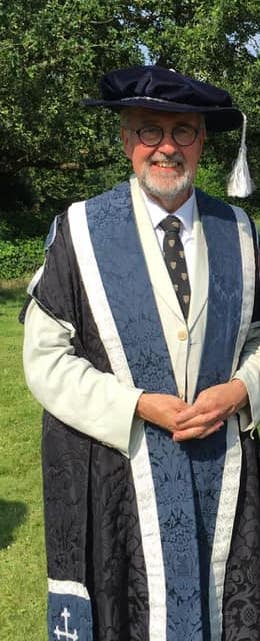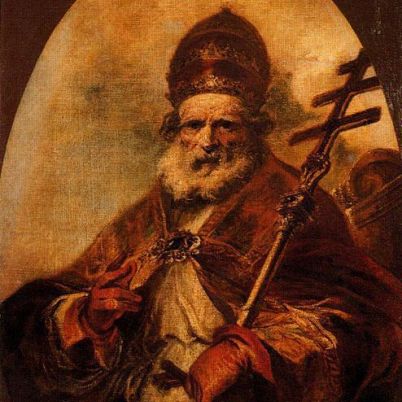Tags

When I started at St Mary’s University in Twickenham in September 2016 I more or less gave up this blog. It was clear to me that participating in the Catholic Culture wars, even inadvertently, was incompatible with my new responsibilities – and anyway, I had a chance to actually do something – that is to help make a Catholic University a strong presence in the Higher Education sector – rather than simply write about these things.
As I retire, after forty-three years in Higher Education, five of them at St Mary’s, it is time to take up the reins again, not to participate in any culture wars – as my more recent posts here should have made clear, I long ago tired of that, but rather to reflect on Christianity in the public square. But first, and here, some reflections as I say “hail and farewell”.
I entered the world of Higher Education, as it then was not generally called, in September 1979 as a lecturer in the School of English and American Studies at the University of East Anglian in Norwich. I was even more blessed than I thought at the time. I knew jobs were going to become scarce, but none of us had any idea they would become so scarce that by 1983 even Mrs Thatcher’s Government, not well-disposed to the sector, would pump some money into what were called “new blood” posts, just to stop the situation becoming impossible. So many of my contemporaries who have jobs, got them then. The Thatcher Government distrusted Universities. It distrusted our claims of professionalism and self-governance, seeing in them little more than self-interested excuses for doing what we wanted rather than what we should be doing. The problem with this was that the Government was not terribly sure what that was, a problem shared by successive administrations, whose interventions would, but for the profesisonalism and resilience of the Sector, have totally wrecked things.
As it is, what successive Governments have managed to do is to load the Sector with a regulatory system which the old USSR would have envied, where the question “quis cusodiet ipsos cusdodes?” (who guards the guardians themselves?) is answered by the creation of ever more guardians; if this was a deliberate job-creation scheme for graduates, it would almost be admirable. As it is, even the present Government (surely in an unhappy catalogue the worst in living memory?) has realised it needs to cut back on the number of guardians. But it still has no idea what Higher Education is for. It seems, if one is to believe its rhetoric (itself an interesting philosophical question, can one believe a word that the Prime Minister utters when he so obviously has no conception of the distiction between truth and whatever suits his purpose?), it would seem that it wants “value for money degrees” and “useful knowledge.” Mr Gradgrind is back; in truth her never went away.
And yet, how ignorant this view of Higher Education is, as the University from which I am retiring has shown. With an Employability rate in the 90% range, in a university which takes more than 60% of its students from backgrounds where no one in the family has been to university, no one could accuse St Mary’s of not caring about getting good career prospects for its students. My academic colleagues put in longer hours than anyone would pay them for before they believe in the real mission of the university; they know our real Mission.
It is that mission which brought me to St Mary’s and it is that mission which took me into Higher Education, and it is a mission with a heavy religious dimension. It is best expressed in St John Henry Newman’s words:
God has created me to do Him some definite service. He has committed some work to me which He has not committed to another. I have my mission. I may never know it in this life, but I shall be told it in the next. I am a link in a chain, a bond of connection between persons
Newman
And that, in a nutshell, is what we do in Higher Education. Our job is simple but complex, it is to help every student who is capable of studying and wants to study, to become the best “them” they can be. It’s not our job to say how many scientists, lawyers etc. the country is going to need. No one can know that. Jobs which the Government might say are essential today, may not exist in twenty years time, and jobs no one ever thought of will exist. What is needed are people who know how to think and people who are rounded individuals. Newman got it right in his Idea of a University and it is that mission which St Mary’s has continued.
St Mary’s is a special place because embedded in its DNA is a commitment to teaching. It was founded in 1850 to provide teachers for “Catholic Poor Schools.” It was not founded by any Government, it was founded by the Catholic Church to help train teachers for the Irish immigrants and other Catholics in London. That great and much-understimated man, Cardinal Manning, would not allow the construction of a cathedral in London until every parish had a school. Education pulled men and women out of poverty – and poverty took, and takes many forms.
After the Pandemic, no one can doubt that communities in this country are still blighted by material poverty, and the Churches, Anglican and Catholic, have played a noble part in helping alleviate the suffering it causes. But there is spiritual poverty, there is cultural poverty, there is the poverty of a life lived simply for work, where the riches of family and friends take second-place to the “toad work” as Larkin put it:
Why should I let the toad work
Squat on my life?
Can’t I use my wit as a pitchfork
And drive the brute off?
Philip Larkin: Toads
One of the purposes of a University education is to help each invidual find that destiny for which God has selected them, and to equip them with the wherewithal to achieve it. But that destiny has never been just to get rich. We can see what God thinks of such people not only by those to whom he gives riches, but by what he has to say about them in Scripture. Life is a gift, and teaching at any level is a privilege because we get the chance to help others become what is in them – education is about that “leading out” process.
It ws with this faith that I entered Higher Education forty-three years ago and as I retire from my Provostship I can say as St Paul did
I have fought the good fight, I have finished the race, I have kept the faith.
I now hand on that torch, with confidence, to my successors. There is a very great deal of rubbish talked about what goes on in our universities most of it from people who are not in them. For sure, as we are fallen creatures, not all is Eden, but I thought, as I looked out with pride at my last graduation ceremony as Provost, that of all the ways of spending the life given to me by God, this was one of the better ones. My teachers made a difference to me they could never have imagined, and if by God’s Grace I have been able to do likewise, that is sufficient.









You must be logged in to post a comment.